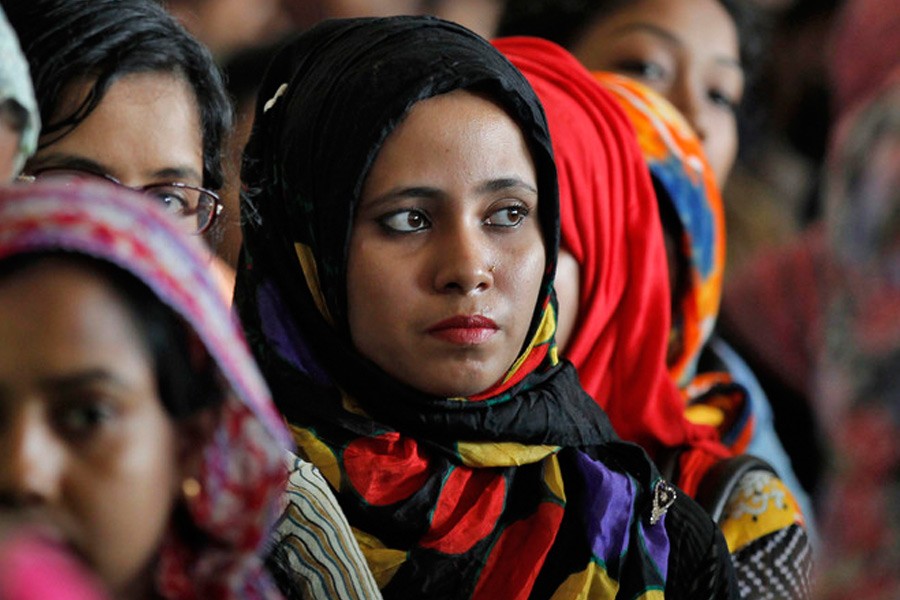Women migrant domestic helps face violence from both the employers and sub-agents, appointed by recruiting agencies, in job destination countries.
But they don't get proper legal support and compensation for their losses caused by violence, said a study conducted by Ovibashi Karmi Unnayan Programme (OKUP).
The study titled 'Access to Justice for Bangladeshi Migrant Workers: Opportunities and Challenges' was carried out during the period between January and December in 2018.
The research was based on evidence collected from 110 returnee women and girl migrants who faced exploitation and abuse and sought justice through Bureau of Manpower Employment and Training (BMET) arbitration or civil courts. They returned home from countries like Saudi Arabia and Lebanon.
All of the surveyed women described horrific stories about abuse, exploitation and rights violation by employers and middlemen of recruiting agents in destination countries, the study said.
Of them, 86 per cent did not receive salaries even after they worked for three to 53 months while 63 per cent returned home with illness because of abuse, 61 per cent suffered physical torture, 52 per cent did excessive work and 14 per cent faced sexual abuse.
Most of the women termed the agency office as a 'torture cell' as they were beaten, throttled and starved for up to several weeks.
They also claimed that they were tortured until they agreed to work with the same employer and same conditions until they could manage money to return home.
Some women alleged that they had to have sex with men in the agency office to ensure their return.
In reality, 52 per cent of women said their families had to pay the agency office between Tk 20,000 and Tk 200,000 for their journey to home.
"The man came with a chair and forced me to stand on it. When I did, they hanged me from the fan with my scarf. I could not breathe. I was suffering from asthma and thought I was going to die," said one of the respondents.
"As I was screaming for help, the men pushed the chair back and asked if I would agree to do domestic work. I told them I wouldn't do domestic work even if I was killed," she continued.
However, there is no separate or dedicated office for dealing with arbitration cases for migrant workers. Besides, migrant workers made common complaints that they encountered unfriendly behaviour.
The compensation settled by the arbitration is quite low, considering their losses including social and financial cost and exploitation that they faced because of such unsuccessful migration.
Citing the data of BMET, the study showed that about Tk 2.9 million was received in compensation through arbitration for 315 women returnees in 2018 which meant that each woman got only Tk 9,200. But each of them spent Tk 10,000 to Tk 100,000 on their migration.
Migrant workers, particularly women often feel discouraged to file cases with courts as they have lack of confidence in getting justice.
On the other hand, the findings showed that some 57 per cent of the women paid migration cost to go abroad with jobs. However, the government declared zero migration cost for women.
It also showed that the majority of outbound women workers--64 per cent-- did not receive job contracts before their departure, although employers promised to provide all of them with good jobs and salaries.
Some 25 per cent received false training certificates from sub-agents even though they did not take part in mandatory pre-departure training course, provided by BMET.
About 11 per cent of the respondents were under the age of 25 years. But minimum age limit for women overseas workers is 25 years fixed by the government.
OKUP chairman Shakirul Islam said it should be ensured that migrants can get easy access to justice and due services.
He also emphasised on proper compensation taking into account all relevant losses including physical and psychological abuse against women workers.
Since 1991, about 0.8 million women went abroad with jobs and most of them were engaged in the domestic help sector in Middle-Eastern countries.


